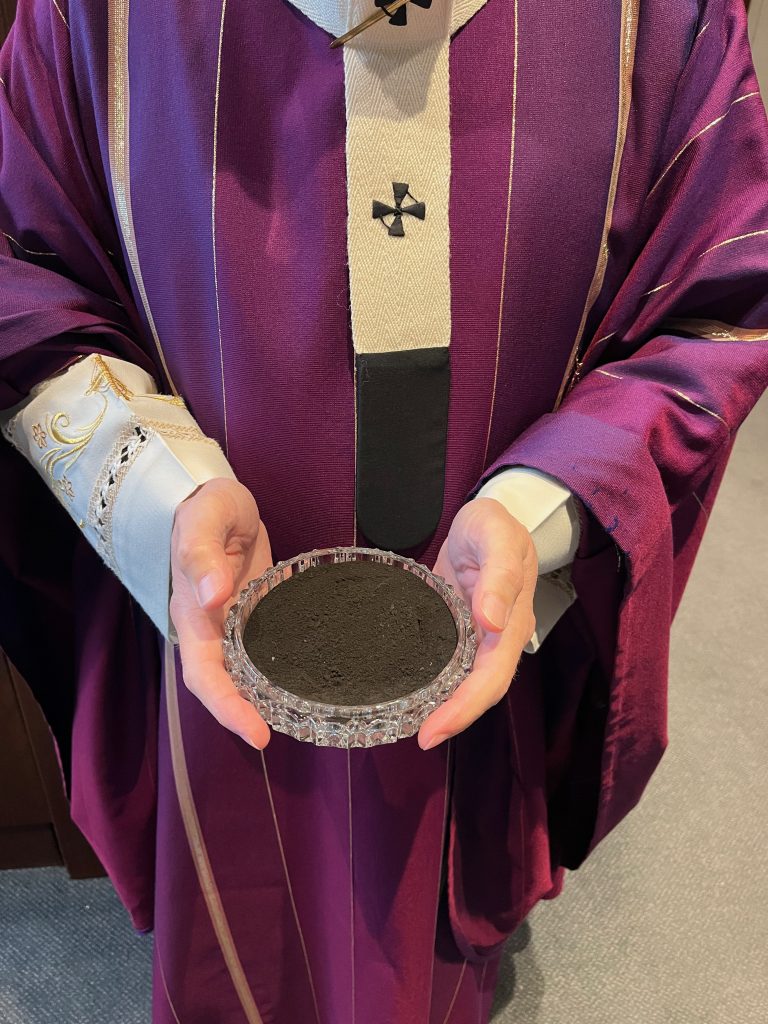
Ash Wednesday Homily, 2023
Once again, another Lenten Season begins with the invitation to return to the Lord. (Joel 2:12-18). The Greek word for conversion is metanoia which places this invitation to return to the Lord in stark relief. Metanoia means to turn completely around. This is the kind of conversion we seek. We want the Holy Spirit to disturb our consciences so we can see clearly where our lives are going in the wrong direction so that we can heed this call to conversion; turn our lives around and return to the Lord.
Lent is a call to be brutally honest about our sinfulness. As we face the daunting task of conversion it is important to trust in the Lord’s mercy. Psalm 51 today gives us our prayerful plea before God: “Be merciful Lord, for we have sinned.” Psalm 103 also tells us that we can trust in God’s mercy: “The Lord is compassion and love, slow to anger and rich in mercy. … As far as the east is from the west so far does he remove our sins.”
Once we are clear-headed about our sins, and resolved to return to the Lord, we know Jesus is patiently waiting for us. Jesus is the true source of God’s mercy and salvation. Lent is the time to heed his call: “Come to me, all you who labor and are burdened, and I will give you rest. Take my yoke upon you and learn from me, for I am meek and humble of heart; and you will find rest for yourselves. For my yoke is easy, and my burden light.” (Matthew 11: 28-30) This is the time to remove all obstacles in my relationship with Christ, that I may draw ever nearer to him. Indeed, it is a time to go beyond simply drawing near, and enter into the Way that is Christ, the Truth that is Christ, the Life that is ours in Christ. (John 14:6)
Part of the path of conversion is penance, and today’s Gospel instructs us in the ways of fasting, prayer and good deeds. Beyond penance, these three habits are also components of a fruitful Christian life, rooted in one’s relationship with Jesus Christ.
For instance, what does it mean when Jesus tells his disciples to not let their left hand know what their right hand is doing? Is this not an instruction to lead a virtuous life? How else is it possible to not have your right hand know what your left hand is doing? When virtue – doing good – becomes a matter of habit – doing good as a matter of practice, in a way, occurs without thinking about it. One’s heart leads someone to consider a charitable act, and the good deed naturally follows without any further consideration. The good deed is done because one’s life is so caught up in Christ. Our good deeds are not meant to draw attention to ourselves, but rather to reveal the goodness of God to others. When others encounter us, our intention is, or better yet, the Lord’s desire is to be revealed to them through us.
The Christian, modeling his or her life on Christ, is to live a self-less life, rooted in charity – rooted in Christ – Who says: “I am the Vine, you are the branches. Remain in me.” (John 15) In the same passage, Jesus tells us that it is by this means that God the Father is glorified. Our conversion is to lead to a life fully caught up in the life of Christ, Who did everything in accordance with the will of the Father, in loving obedience to the Father. Jesus’ food was to do the will of the Father. It is Christ Who taught us to call God our Father. It is Christ Who taught us how to live as children of God. It is Christ Who is the only Way to the Father. This is the Way of Lent, the Way of conversion, the Way of Christ.
The Prophet Isaiah instructs us regarding the kind of fasting God is asking of us. (Isaiah 58:1-12) It is a fasting not for one’s own good, but leads to the good of others:
Releasing those bound unjustly,
Setting the oppressed free,
Giving some of our bread to the hungry,
Sheltering the oppressed and the homeless,
Clothing the naked,
Jesus claims these very tasks as his mission at the beginning of his public ministry, (Luke 4:14-21) and includes all of these admonitions as the standard for the final judgement as well, (Matthew 25:31-46) and adds a few others, from which we draw the corporal works of mercy. Lent is far more than a self-improvement program. In addition to penance and conversion, Lent is a time to recognize the many needs of our neighbors and to take an active and personal role in lightening their burdens. The call to conversion is a call to fraternity since this is the field of charity where our lives are to bear much fruit.
Let us move with hope and confidence into our Lenten journey as we resolve to turn away from sin, to be renewed in Christ, and to be faithful to the Gospel.
7